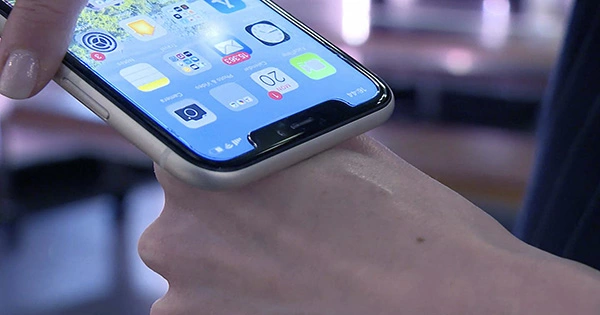The unveiling of an implanted vaccination passport, presumably heralding the approach of the antichrist, has confirmed vaccine opponents’ suspicions about the implantable microchips. Reality: A tiny business is pushing the ability of pre-existing chips to pull up vaccination passports on adjacent phones. It does not have government approval, let alone coercion.
A Swedish firm has suggested incorporating vaccination passports into scannable implants, which is a public relations nightmare for scientists and a gift to anti-vaxxers. Although the technology is not the same as the imaginary trackers that conspiracy theorists have said will be included in vaccinations for the past two years, the two sound similar enough that “we told you so” postings are already written.
Although meant to make it simpler for those who have been vaccinated to prove it, many believe that the attention around it will make it more difficult to persuade vaccination skeptics. Dsruptive Subdermals sells implants that measure 2 millimeters by 14 millimeters (0.08 by 0.55 inch) that can scan by a scanner after being put beneath the skin.
They are now pushing their ability to link users to a pdf of vaccination status after failing to find many markets for past applications of the implants. “I have a chip implant in my arm,” the company’s managing director Hannes Sjöblad told AFP. “I have configured the chip such that I have my COVID passport on the chip, and the reason is that I always want to have it available.”
For at least three years, Sjöblad has pushed the notion of implanting microchips inside humans. “These chip implants are not a new thing,” he told ABC News in 2018. “We’ve been placing them in animals for decades, so this is tried technology.” He projected that the technology will be “everywhere” in a year or two at the time, but that did not happen. Humans, unlike (non-marsupial) pets, frequently have pockets on their clothing where they can put cards and a phone that can do the same job as an implanted chip, therefore the benefit is less evident.
Sjöblad’s implants are compatible with a variety of card readers, and he has added functions to his implant such as his Swedish train pass. The vaccination passport is the newest addition to the collection. “People will be able to check my status even if I don’t have my phone if I go to the cinema or to a shopping mall,” Sjöblad told AFP. The chip can only read in close proximity and cannot use to monitor a person’s position.
Sjöblad claims he will never lose his chip and will not have to worry about leaving the house without it. He hosts “implant parties” at which he advertises the operation by comparing it to getting a piercing. Naturally, not everyone is enthralled by the concept. When an implant enthusiast attempted to employ a comparable chip for Sydney’s public transportation system, he was unsuccessful.
Sjöblad opposes making the implants mandatory, but there are concerns that this is where this movement may go. Companies and governments may refuse to accept proof in conventional card form if majorities of people adopt the notion, according to the argument, thereby locking individuals without an implant out of contemporary society. However, we are still a long way off, and adoption is likely to be far slower than Sjöblad anticipates.
Aside from those concerned about the discomfort, the price of 100 Euros ($112) will deter many. Even people who appreciate convenience may regard the concept of being perpetually readable as a flaw rather than a positive. Even if such chips remain a small niche market, anti-vaccination activists will almost certainly exploit the concept to spread panic. Just when Omicron is about to persuade some individuals who have been reluctant to vaccinate to put their anxieties aside, the association with a microchip implant may force them to reconsider.













